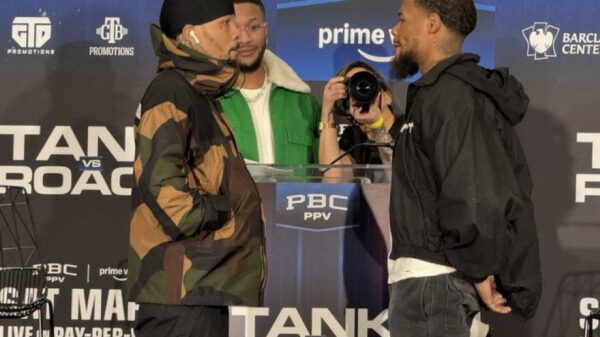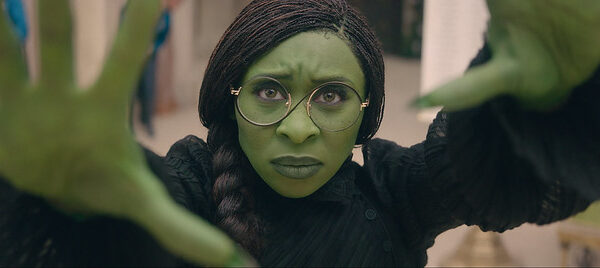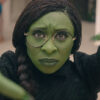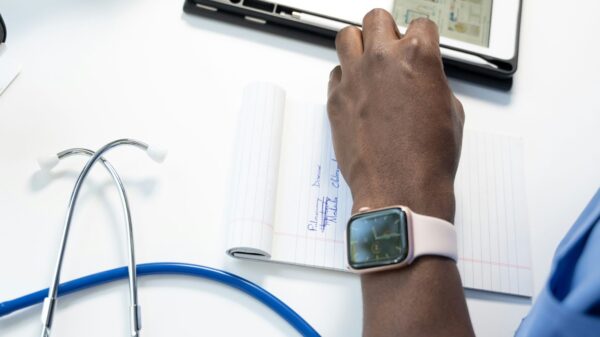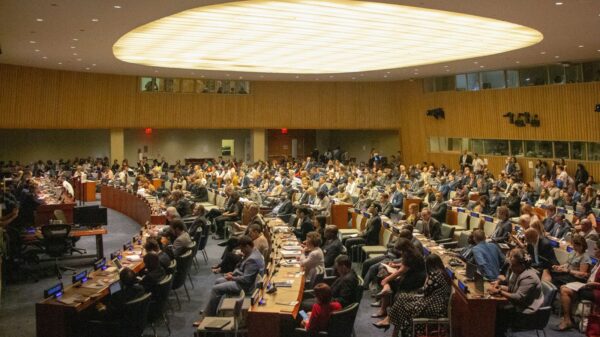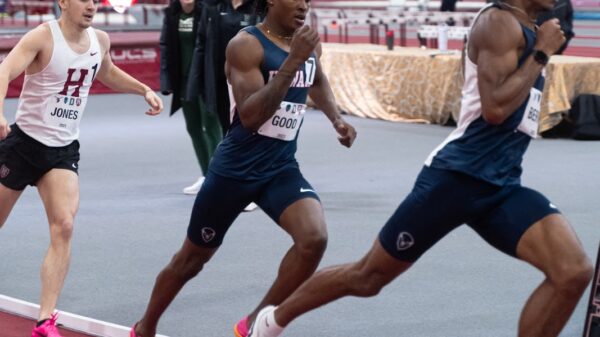On Wednesday, Nov. 16 in the Blackburn Ballroom, Xfinity premiered “The Black Beauty Effect” docuseries. The three-part series comes out on Nov. 25 on the Black Experience Channel, but Howard students had an exclusive screening before it was released to the public.
The docu-series showcases the history and celebration of Black beauty and the African-American impact on the Beauty industry. The series focuses on makeup, skincare, and hair while also featuring women like content creator and beauty influencer Jackie Aina, actress Megan Good, Black Opal CEO Desiree Rogers, and Howard alumnae beauty editors Maya Alam and Kahlana Barfield Brown.
The first part of the series covers the makeup industry and how Black women had to pave their way into the very limited industry. In the early stages of the beauty industry, it was only familiarized with white beauty such as thin lips, straight hair, and fair skin. Qualities associated with Africana were labeled “inferior” by European colonists as the antithesis of attractiveness. It wasn’t until the first Black innovators like Anthony Overton, Barbara Walden and Anitta Patti Brown decided to take over the cosmetic industry creating cosmetic products for Black women.
Creator and executive producer, Andrea Lewis, who is best known for her role as Hazel Aden in “Degrassi The Next Generation,” shares her inspiration to create this series from her experience in television and film.
“I’ve seen many experiences in a hair and makeup room from a very early age and saw the challenges of being in that space as a black person,” Aden said. “Typically when you go into a hair and makeup room, there’s not always a person of color there to do your hair.”
The series starts by showing that the 1960s kick-started Black power and the Black art movement, which gave people celebratory images of Black people. White cosmetic companies realized Black women buy many makeup products but didn’t have the knowledge of the correct shades for Black women.
Black businesswoman Eunice Johnson’s company, Fashion Fair, took beauty to the next level in the 1970s. Black runway models didn’t have makeup that worked for them they used lotions and brown eyebrow pigment to make foundation. Whereas companies weren’t interested in making darker colors so she did that herself. Brands like MAC Cosmetics’ inclusivity led the path in the 1990s by signing talent that other brands wouldn’t, like drag star RuPaul, R&B singer Mary J. Blige and rapper Lil’ Kim. This was the first time Black women began to see women who looked like them in makeup ads with foundation shades that actually matched their skin tone, without white casts or gray undertones.
Black beauty editors were also a topic discussed in the series as to how rapidly this industry began to change. Mikki Taylor was one of the few Black beauty directors to change the blueprint of Black beauty editors. There were only a few Black women in the room for decades,
with very few Black beauty editors. Howard alumna Kahlana Barfield Brown recounted reports on product launches, but it was very clear to her that these products were not made for her. Kahlana further explained seeing the expansion of the beauty industry from content creators stepping into the scene at beauty events, and eventually over time, becoming more involved in beauty events and product launches.
Content creator Shalom Blanc recounted not having shades that would match her and automatically choosing the darkest shades possible because options were so limited for darker skin tones. Large companies began to realize the influence content creators have a hand in on what black girls buy due to their product reviews. This shift gives control back to consumers because content creators create the narrative of how brands represent the Black community. Content creators are now holding brands accountable for their inclusivity of all skin tones. This became the voice for other Black women and can talk about what Black women needed and wanted.
Cj Faison, one of the executive producers, helped Lewis grow her idea of The Black Beauty Effect because he recognized the space Black women needed. After graduating from Florida Agricultural & Mechanical University (FAMU), he talked about how he entered the corporate world. Being a FAMU alum, he shared insight about letting one’s work make room for them and add value to companies so skin color won’t matter, especially after leaving an HBCU. “I just showed up prepared, showed up sharp and people respected that.”
Copy edited by Alana Matthew


